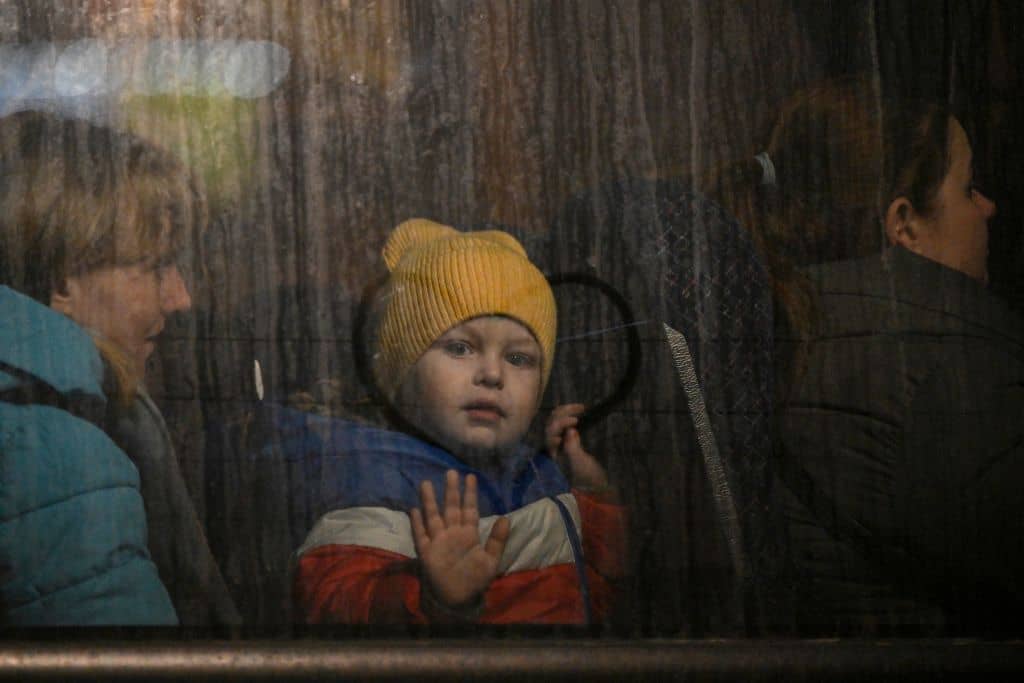Michael Gove has announced that members of the public will be able to offer rooms and accommodation to named refugees through a government portal – Homes for Ukraine – which was launched on Monday. Gove said that he was confident there would be no shortage of people coming forward, although he gave a somewhat roundabout answer as to whether he himself would be hosting a refugee. The British public, however, appear to be very open to becoming hosts, with one in three saying they would offer a room, according to a poll conducted by The Observer.
When Gove launched the scheme in the House of Commons yesterday, Lisa Nandy was quick to criticise the government’s policy of asking volunteers to name Ukrainians who they wished to host. Many potential volunteers might discount themselves due to not knowing any Ukrainians. But the Chair of the government’s Adoption and Special Guardianship leadership board Krish Kandiah, whose charity website sanctuaryfoundation.org.uk has received 18,000 pledges of accommodation since being set up late last week, says a lack of personal links to Ukraine shouldn’t be a barrier to volunteering. His site hopes to match willing hosts with Ukrainians so that volunteers can then go through the government portal to offer a room. It also helps businesses, communities and churches to sponsor groups of refugees by offering to provide accommodation and other support collectively. ‘Community groups are well placed to help refugees navigate the complexities of living in a new area,’ says Kandiah, ‘from registering them with a GP to linking children up with local schools.’
Once volunteers have been paired with a named refugee, what can they expect? Philip Marsden, who recently hosted a family of three from Afghanistan and is in a senior role at the Bank of England, says that his guests ‘just needed a safe place to sleep, to be together and the knowledge that they could participate or not in meals and talks.’ He said it was vital to treat them like lodgers rather than guests: ‘That was key for their feelings of independence.’
Rachel Poulton from North Yorkshire is currently fostering four refugee teenagers from conflicts that pre-date Ukraine. She says that, beyond the obvious needs of shelter and food, it’s important to extend a warm welcome and not to ask questions: ‘They arrive having experienced real trauma, which is often relived as the news rolls in on their mobiles.’ They may have reached a place of safety but, for many, the trauma is ongoing as they continue to watch events unfold back home or wait to hear about the fate of loved ones.
Rachel says that there should never be any expectation from the hosts that their guests should talk about what they have witnessed. ‘We’re there to build the relationship, share meals and when they’re ready to talk they will but we just wait.’
It’s important to find ways of forging friendship that aren’t to do with talking about the conflict, she says – whether that’s through sport or cooking meals together. ‘They shouldn’t feel under any pressure to constantly be saying thank you. Instead, it’s better to give them a meaningful chance to contribute. It could be as simple as helping to peel the potatoes for dinner. Giving guests the space and opportunity to help is good for people’s dignity.’
As for the language barrier, Rachel says it wasn’t as big an issue as you might imagine: ‘A smile goes a long way, and there’s always Google Translate.’
Ethel, 67, from Hampshire has fostered over seventy children over a 22-year period and took in two teenage asylum seekers from Iran and Afghanistan. Like Rachel, she says that speaking a different language wasn’t an insurmountable barrier: ‘A smile, a welcoming home that conveys the sense that you are really pleased to be hosting them speaks volumes.’
For families considering offering accommodation, Ethel said that fostering was ‘an education’ for her own children, who have become very emotionally intuitive as a result. ‘My daughter who is now a teacher knows not to take a child’s behaviour at face value but to look to the root cause.’
With a cost of living crisis looming, the government is providing £350 a month tax-free to those who house refugees. But Krish Kandiah doubted whether the money was much of a motivation for volunteers: ‘Our site was inundated with sign ups before the government announced their financial incentives. We were being clear with people that they would need to look to raise their own funds to cover costs and they were still making pledges.’
Refugees at home is another charity that seeks to pair those offering rooms with refugees, although they ask that people only apply to be hosts if they live in a city or town with good transport links. ‘Most refugees do not want to be hosted in the countryside because they crave community, the language they speak, the food they know, English lessons, often some therapeutic help.’
While the government’s response to the refugee crisis has been markedly slow, members of the public have been quick off the mark to offer help: the government refugee scheme website crashed on Monday due to the volume of people attempting to register, with 43,000 having done so already.
To offer accommodation to a known refugee, visit https://homesforukraine.campaign.gov.uk and, to be matched with a Ukrainian looking for a room, visit www.sanctuaryfoundation.org.uk






Comments